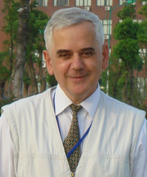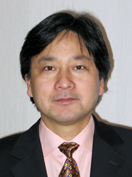
Prof. Christian Müller-Schloer
Leibniz Universitat Hannover, Germany
First steps towards adaptive and self-organizing computer systems are already being undertaken. Adaptivity, reconfigurability, emergence of new properties, and self-organisation are topics in a variety of research projects. The special priority research program on Organic Computing of the German Science Foundation (DFG) addresses fundamental challenges in the design of organic computing systems; its objective is a deeper understanding of emergent global behaviour in self-organising systems and the design of specific concepts and tools to support the construction of organic computing systems for technical applications.
This presentation will introduce the research ideas of Organic Computing, explain key concepts such as observer/controller architectures and multi-level online learning, and illustrate these concepts with current technical application projects like Organic Traffic Control, Organic Network control or Cooperating Smart Camera Systems. It will conclude with an outlook towards future Social Organic Computing systems.
From 1980 until 1982 he was a member of the Siemens research labs in Princeton, NJ, U.S.A. In 1991 he was appointed full professor of computer architecture and operating systems at the University of Hannover. His institute, later renamed to Institute of Systems Engineering - System and Computer Architecture, engaged in systems level research such as system design and simulation, embedded systems, virtual prototyping, educational technology and, since 2001, adaptive and self-organizing systems.
He is one of the founders of the German Organic Computing initiative, which was launched in 2003 with support of GI and itg, the two key professional societies for computer science in Germany. In 2005 he co-initiated the Special Priority Programme on Organic Computing of the German Research Foundation (DFG).
He is author of more than 130 papers and several books.
Present projects - predominantly in the area of Organic Computing - deal, among others, with topics like quantitative emergence and self-organization, organic traffic control, organic network control, self-organizing smart camera systems and ontology-based self-organizing embedded systems.

